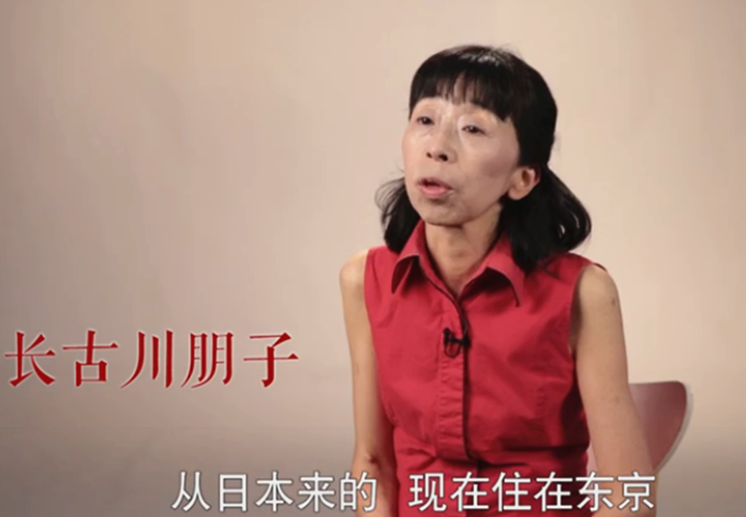Tomoko Hasegawa, 56, is one of the initiators and the co-leader of the Healing River-Rainbow Bridge, a ministry aiming to bring powerful healing to those "comfort women," those former sex slaves forced to "comfort" soldiers on the front lines during the Japanese invasion of China in WWII.
The Tokyo-born woman introduces that she became interested in China at university and worked in Beijing for a period of time after graduation. Learning Chinese culture, she came to know the fact of the Sino-Japanese War and her heart was filled with guilt. Realizing that ignorance is a kind of sin, the Japanese Christian wanted to deal with the hurting caused during that period of history.
According to Wikipedia, during the Second Sino-Japanese War, the Japanese captured Nanjing and murdered Chinese civilians and disarmed combatants who numbered an estimated 40,000 to over 300,000 and perpetrated widespread rape and looting. Many grandparents and fathers of Japanese families have experienced the war, states Tomoko. However, some who feel guilt dare not to speak anything about it and hide the past in their hearts; some refuse to admit their sins and change the fact to claim themselves as war heroes... With a deeper understanding of the past history, she insists that the Japanese "should apologize to China."
Back in the capital of Japan, she joined in a prayer gathering consisting of Japanese Christians who face and admit the past and desire to take action to bless China. Later, they founded the ministry. In 2007, they started to pray for China. One year later, they saw a vision from God that "there is a river between China and Japan and the two countries facing each other across a sea are near the seashore, while the spiritual bridge (connecting them) has been completed." That is "the Rainbow Bridge".
The ministry aims to bless nations and peoples through culture and art. It's also committed to offering apologies to all the victims and countries who suffered from oppression and massacring for the crime the Japanese ancestors did and establishing reconciliation with them. Moreover, it offers intercessory prayer for lands and rivers polluted by sins and asks for God's cleaning and healing.
This Japanese team goes to different cities in China every year since 2008. They kneel down before victims of war, asking for their forgiveness with sincere hearts. Tomoko adds that this is accompanied by a Chinese poem which she wrote to express their repentance. She says that many Chinese burst into tears when she reads the poem. During the past eight years, they have been to cities like Beijing, Nanjing, Hainan, Shanxi, and Guangzhou, conveying their regret by confessing sins, repenting and prayer to be forgiven by Chinese people.
In 2015, she was touched by a bronze statue placed in a memorial hall for the Nanjing Massacre, where used to be a "comfort station" or brothel. It depicts a naked girl who hid her face and cried on her knees. At the first sight of the statue, she knew that the "comfort girl" still felt humiliated then she wanted to cover her with a scarf to remove her sense of shame.
Since then, she will put the scarf on the used-to-be comfort women, implying that "all the shame has been gone and they are covered."
However, the ministry dedicated to the reconciliation between China and Japan is opposed by her own people. Even so, she is determined to continue this ministry. At the same time, Tomoko still worries about the religious chaos existing in Japan. She explains, the previous persecution in this country prevented people to worship Jesus Christ, while the present one allows you to believe in any religion. Some people who claim themselves as Christians also believe in fortune-telling and even other things from the New Age Movement, a spiritual belief and practice developed in the West during the 1970s.
In addition, she mentions problems among Japanese youth and families. There is a popular chatting App, similar to MSN or Whatsapp, among teenagers in Japan. If one don't reply to others in time, he or she will be excluded from the circle. So cellphones are nearly with them anytime, becoming a focus of their life.
The family problem stems from that they don't believe that God loves the country. For the young-generation or new families, husbands are inclined to be violent, angry or feel inferiority, as a result, their wives and children are in fear. Some of the grandparents who underwent wars are either bad-tempered due to their guilty or lie to themselves, considering themselves as the national heroes.
"There are many spirits of death and unbelief hanging over the nation.", says Tomoko, "I hope you can pray for the country and help it break (the bonds of) violence, inferiority, and death and restore families (that truly belong to Christ)."
Rev. Jacob who has participated in an intercessory prayer ministry for the reconciliation among China, Japan and South Korea for a decade, shares that people get grace, forgiveness and eternal lives through the gospel, and more importantly, they are given the ministry of reconciliation. Christians should be responsible for this ministry, achieving reconciliation in every aspect of our life.
The pastor from Hangzhou states that there are anti-Japan emotions that are "hard to be released" among Chinese. They are curses, making people in the complaints and hatred to Japan. "Those who hate others are bound to be hated. They live under curses."
He believes that we shall choose forgiveness if we desire to be released from curses. The pastor hopes that God can work so that the heart of everyone can be renewed and transformed.
Translated by Karen Luo













